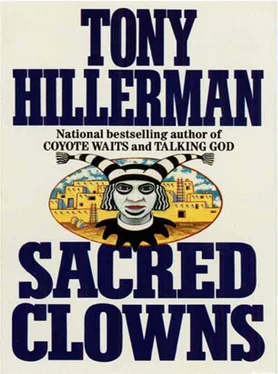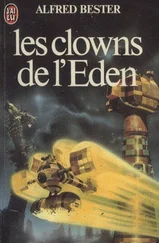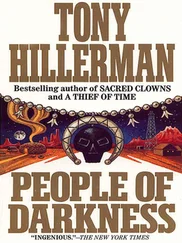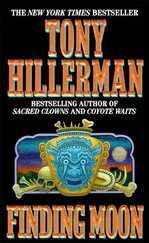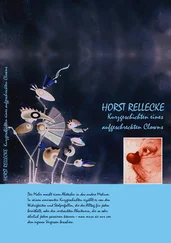“That starts it,” he said.
“Well, it’s not pleasant, but it’s not too hard either. You just think about why you have laws. Society puts a penalty on driving drunk because it kills people. It puts a penalty for leaving the scene of an injury accident for pretty much the same reason. So what you do is arrest this guy who broke those laws and present the evidence in court, and the court finds he was guilty. And then the judge weighs the circumstances. First offense, solid citizen, special circumstances. It seems unlikely that the crime will be repeated. And so forth. So the judge sentences him to maybe a year, maybe two years, and then probation for another eight years or so.” She studied him. “You agree?”
“That was phase one,” Chee said. “I’m going to make it harder for you now. We’ll give this guy some social value. Let’s say he is taking care of a disabled kid. Maybe a grandchild whose parents have dropped him on our Gorman while they do their thing. Maybe a broken family. Father took off, mother a drunk. You make your own plot. Now what do you do?”
“Come on, Jim,” she said. “Why not make him a biologist? He’s about to unlock the secret of the AIDS virus. But he can’t leave his laboratory even for one minute to be arrested or his test tubes will all dry up and his cultures will die. It doesn’t change the basic principle. Society passes laws to ensure justice. The guy broke the society’s laws. Justice is required.”
“Okay,” Chee said. “Now we get to the next phase. More complicated. We’ll say this bird is a Navajo and the guy he killed was a Navajo.”
“What’s the difference?” Janet asked. “He violated the laws of the Navajo Nation, too. If you have justice, it spells out the punishment in advance. It tells you if you do this harm to society, then society does this harm to you. We’ll lock you up, for example. Or fine you. The idea is prevention.”
“Right,” Chee said. “Now we enter phase two of this problem.”
“We just finished phase two,” Janet said. “But it’s better than talking about culture.”
“Okay, now for phase three,” Chee said. “We’re dealing with justice. Just retribution. That’s a religious concept, really. We’ll say the tribal cop is sort of religious. He honors his people’s traditional ways. He has been taught another notion of justice. He was a big boy before he heard about ‘make the punishment fit the crime’ or ‘an eye for an eye, a tooth for a tooth.’ Instead of that he was hearing of retribution in another way. If you damage somebody, you sit down with their family and figure out how much damage and make it good. That way you restore hozho . You’ve got harmony again between two families. Not too much difference from the standard American justice. But now it gets different, If somebody harms you out of meanness – say you get in a bar fight and he cuts you, or he keeps cutting your fences, or stealing your sheep – then he’s the one who’s out of hozho . You aren’t taught he should be punished. He should be cured. Gotten back in balance with what’s around him. Made beautiful again-” He glanced at her. She was looking straight ahead, apparently listening.
“Beautiful on the inside, of course. Back in harmony. So this hypothetical cop, that’s the way he’s been raised. Not to put any value on punishment, but to put a lot of value on curing. So now what are you going to do if you’re this cop?”
Chee waited for an answer.
Janet looked at him, raised her hand. “I want to think about this one,” she said. “Time out.”
They were driving past the Bisti Badlands now, looking into the edge of a wilderness where eons of time had uncovered alternating layers of gray shale, pink sandstone, yellow caliche, and black streaks of coal. Wind and water had played with these varied levels of hardness and carved out a weird tableau of gigantic shapes – toadstools and barrels, gargoyle heads, rows of fat babies, the raw material for the most frantic imaginations.
“Wow,” Janet said. “This country is always ready to surprise you.”
“Okay. Time back in,” Chee said. “What’s the answer?”
“If this is hypothetical, it’s just partly hypothetical,” she said. “You agree with Leaphorn. You think you can find him and you’re getting ready for it.”
“Either way, what’s the answer?”
“It’s hard to apply normal city-street law-school solutions where you’re looking at this,” Janet said.
“Maybe the landscape is part of the answer,” Chee said. “Maybe it makes the answer a little different.”
“Yes,” she said. “I see what you mean.” She looked at him a while, her face sad. “Maybe the hypothetical cop would have to quit being a policeman,” she said.
Chee made a left turn onto the dirt road which led, if you followed it long enough, across the southernmost boundary of the Navajo Agricultural Industries project, and if you followed it ten miles more, and made the proper turns, to the house where Clement Hoski lived.
“I’ve thought about that. It’s one solution.”
“What’s another one?”
He didn’t answer for a while. “I’ll show you,” he said.
He stopped at the same place he’d parked before, and glanced at his watch. It was a little too early for the school bus. As before, Clement Hoski’s green pickup truck was not visible – either away somewhere or parked behind the house.
“What are we doing here?” Janet asked. “And I’ll bet I know the answer. Your hit-and-runner lives right there. And you want me to see he’s a real, live fellow human with all sorts of good traits.” Janet’s tone said she wasn’t happy about this. “You’re forgetting my job. Right now I have about seven or eight clients who are genuine humans, and I like them even though they robbed somebody, or cut somebody. You have to believe in justice or you get out of the business.”
“I don’t disagree. The question is bilagaani justice, or Navajo justice. Or maybe it’s, Do you try for punishment or do you try for hozho ?”
Janet looked at him, and then straight ahead out the windshield, her face grim. “We are about to talk about culture,” she said. “Let’s not. Let’s talk about where you’ve been the last couple of days. I get the impression the lieutenant was trying hard to find you. Aren’t you supposed to check out, and leave a number, and all that?”
“I was unhappy,” Chee said. “I had acted like a damn fool and I felt like I’d earned your contempt and all of a sudden I had to go someplace and see if I could find some wisdom, so I went to see Hosteen Frank Sam Nakai.”
“Your uncle,” she said. “Your teacher. The hataalii .”
“I think probably my former teacher,” Chee said. “I think I am considered sort of a semi-heretic.”
Janet was no longer staring out the windshield. She was looking at him. Concerned.
“Aw, Jim,” she said. “Really? I know you were close to your uncle. What happened?”
“Well, it got complicated. We had two other shamans involved – man and a woman, and an old, old, old woman who sort of represents the clan’s accumulated memory and wisdom. We talked for three or four hours and the upshot of it all is I don’t think I’m traditional enough to meet their standards.”
Janet looked stricken. “It was because of me, wasn’t it?”
“It was because of how you understand the Beauty Way,” Chee said. “This business of hozho . The way I understand it-” He paused. The way he understood hozho was hard to put into words. “I’ll use an example. Terrible drought, crops dead, sheep dying. Spring dried out. No water. The Hopi, or the Christian, maybe the Moslem, they pray for rain. The Navajo has the proper ceremony done to restore himself to harmony with the drought. You see what I mean. The system is designed to recognize what’s beyond human power to change, and then to change the human’s attitude to be content with the inevitable.”
Читать дальше
